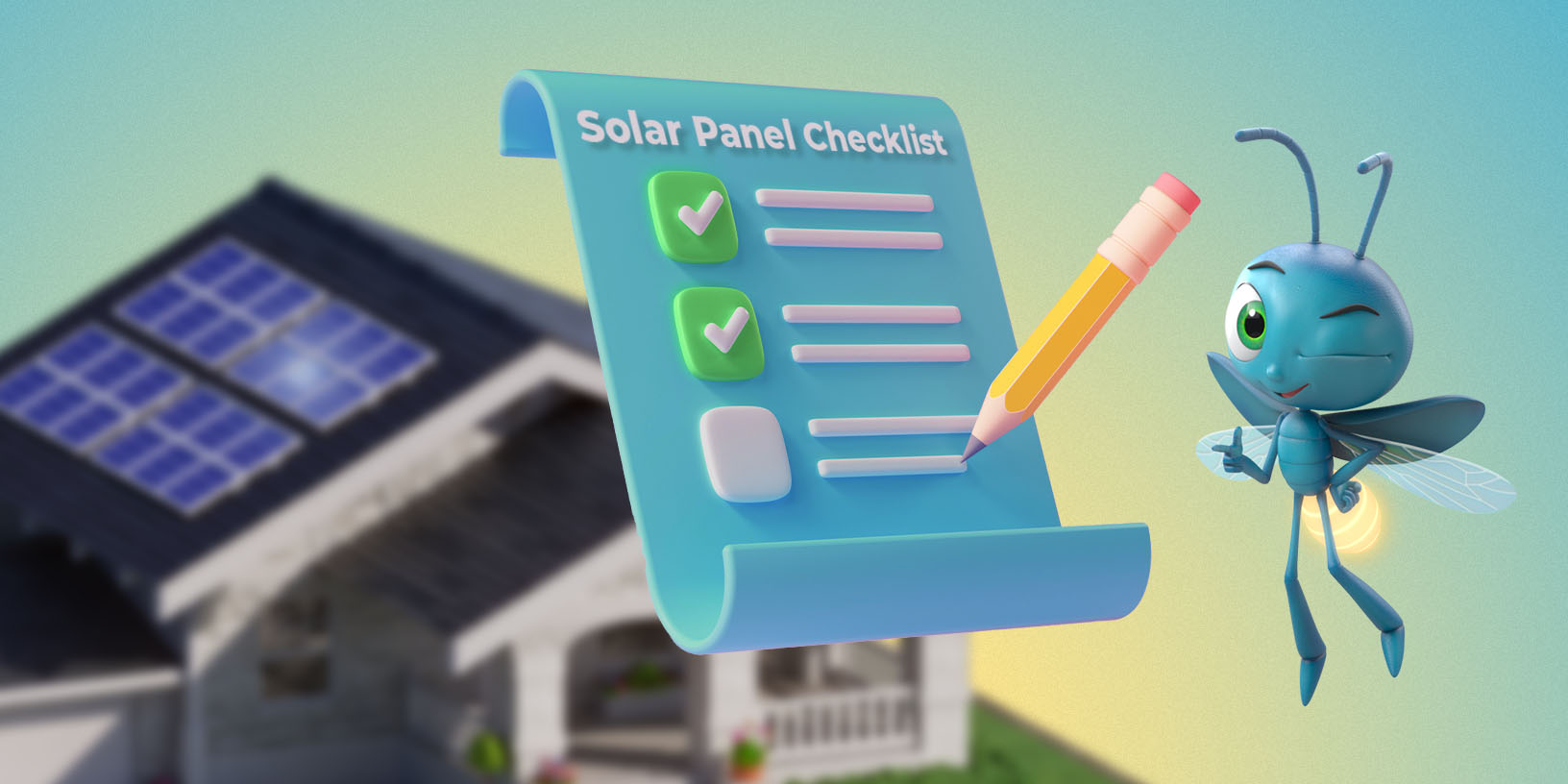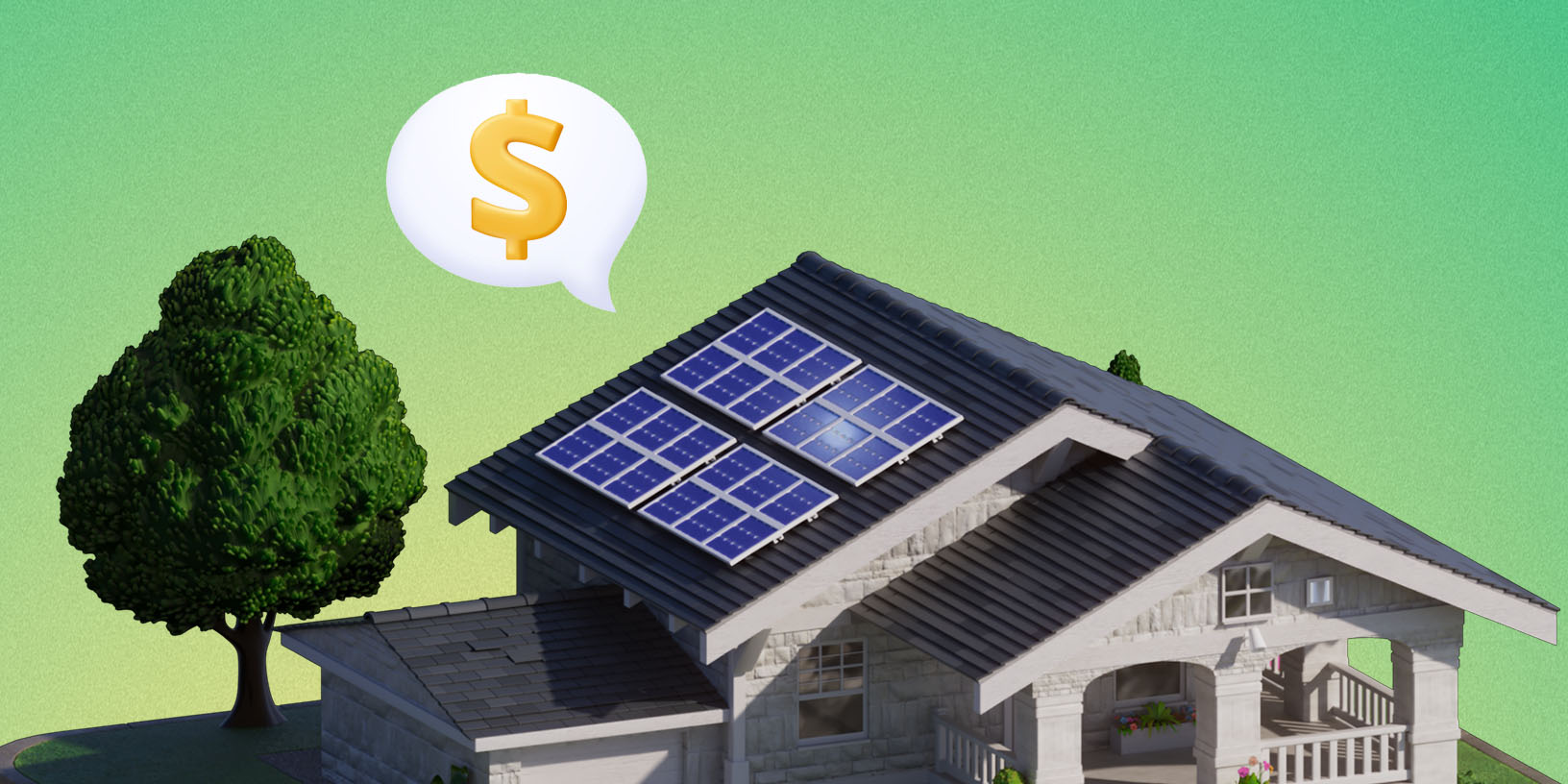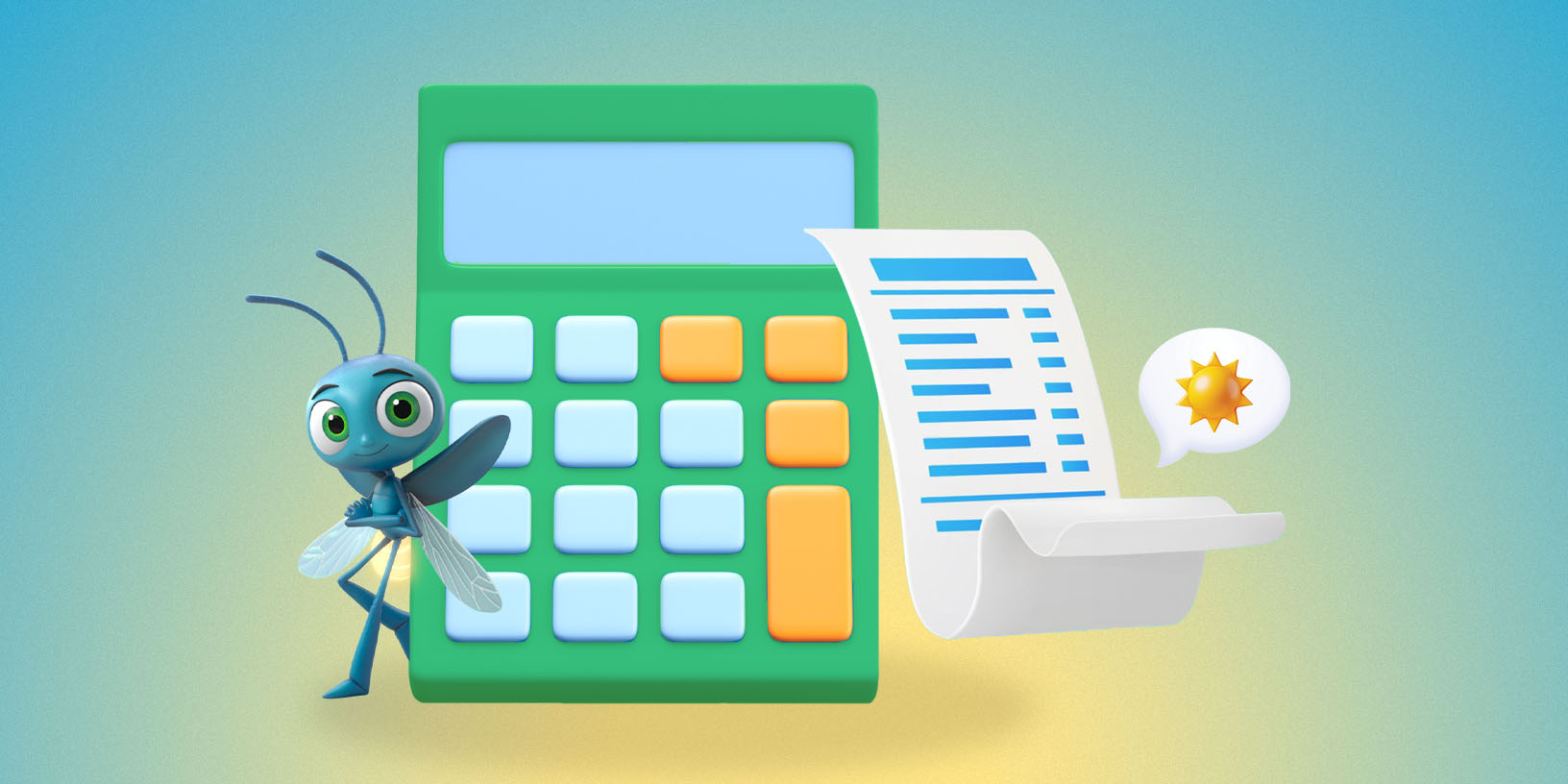Green Mountain Energy's Guide to Going Solar
Is My Home a Good Candidate for Solar Panels?
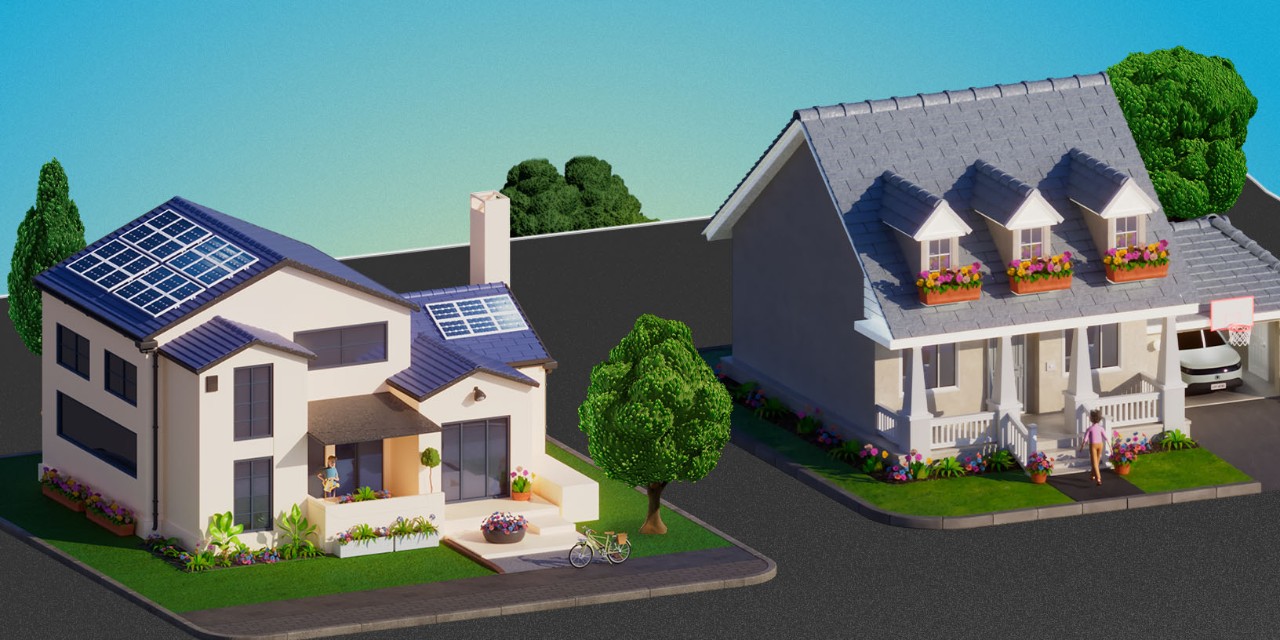
Solar panel installations have increased by over 20% in U.S. homes since 2022, and it's easy to see why. With efficient installation and routine maintenance, solar panels can equip your home with renewable energy, lowering electricity costs and contributing to environmental sustainability.
But not all homes are good candidates for the technology, so before diving in, it's important to do your research. Read on to find out how to assess your home's suitability for solar panels, the effect they could have on its value, and, of course, the maintenance they will need moving forward.
Is My Home a Good Candidate for Solar Panels?
Roof Orientation and Angle
The first thing to consider when deciding whether your home is a candidate for solar panels is roof orientation – that is, whether your roof faces north, south, east, or west. In the northern hemisphere, a south-facing roof will produce the largest amount of energy as it will receive the most sunlight, but east- or west-facing roofs can also work well.
This can vary greatly, depending on location. For instance, Dallas, Texas, is at a latitude of 32.8°N, while New York City is at 40.7°N. A roof angle of 35-40 degrees is optimal; a good rule of thumb is that the angle of your solar panels should be similar to the latitude of your home. If you have a particularly steep roof, you may not be able to achieve the ideal tilt without a specialized rack. Flat roofs can also present challenges, as you won't be able to lay the panels flush with the roof. A flat solar panel won’t be able to self-clean, so rainwater may build up, and grime may become an issue.
Local charges and incentives may also influence the installation process. In Texas, electricity is most expensive from 1 to 7 p.m. during summer, so west-facing solar panels will provide energy when it's most expensive. Looking up your sun number score will help you determine your home's compatibility with solar panels. It is worth noting that certain buyback options allow you to sell the energy back to the grid at a premium during peak times, although this doesn’t affect those on a fixed-price plan.
Shading and Obstructions
Imagine looking at your home from above. Is the roof generally in bright sunlight, or is there shading from hills, trees, or neighboring buildings? Blocked sunlight can drastically impact the amount of energy you get from solar panels, but that doesn't mean you should remove everything that's in the way. For instance, trees provide shade in the summer and natural insulation in the winter, and they improve the aesthetic of your home. Additionally, they may be shared with neighbors who may not be willing to remove them.
Shading varies throughout the year, but there are plenty of tools out there to help you assess it, starting with sun-path diagrams. These are charts that can illustrate the sun's position at any point in time during the day and the year. You'll need a reference point for this, so start with where your solar panels will be most likely to go. Finally, are you likely to get snow in your area? In the northeast, snow and ice can significantly impact solar panel performance and cause damage to the panels. This will impact not only energy production, but also maintenance and installation considerations. If you only receive a light dusting of snow, your solar panels can still produce energy, but you may need to cover panels set at a shallower angle when snowfall is heavy.
In a nutshell, rooftop solar panels are ideal for homes exposed to bright sunlight, but if you have too much shade or too many obstructions, there are other options. Why not try a renewable energy plan, or consider a ground-mounted or community system instead?
Roof Condition and Material
Solar panels are durable and designed to last around 25 years. Will your roof last that long? Before starting any installations, it is essential to make sure your roof is in good condition for such a long-term project.
A visit from a trained inspector will usually include a visual assessment followed by leak testing and a penetration check to ensure that the mounting brackets won’t compromise the roof. Any suggested repairs or replacements should be taken seriously, as failure to do so can not only turn a small problem into a very expensive repair, but it may also invalidate your solar panel warranty. For this reason, it is important to have regular roof inspections.
Bear in mind that solar panel mounting racks work best with solid roofing materials. Composite or asphalt shingles, standing seam metal, and concrete tile are ideal, but you can still go ahead if your roof is made of wood shake, slate, or other materials. In these cases, just choose a solar professional who has experience with these types of roofs.
Solar Panel Installation: What to Consider
Permitting and Regulations
Solar permits are required throughout the U.S. Typically, the solar panel installer will handle the permitting process, but it is worth finding out about any local regulations that require specific procedures. For example, there will be local zoning laws, building codes, electrical codes, and safety regulations according to city, county, or state.
All installations will be subject to final inspections by the relevant authorities, so timelines may vary. Generally, solar panel regulations focus on safety and aesthetics, as well as the prohibition of installing panels in areas shared with neighbors.
Solar Panel Design Options
Solar panels don’t have to be an eyesore, and they can be produced to match any building. Typical colors include gray, brown, and brick-red. On-roof panels are the most popular solar panel design. Still, in-roof panels (where the panels are integrated into the roof or other parts of the building) are popular for new builds and those seeking a sleeker aesthetic.
Other options include pitched panels for flat roofs, solar panel tiles (which replace your current roof tiles), and more. Most installers can handle simple on-roof projects, but not all have extra products or expertise, so be sure to check with your provider before booking.
Do Solar Panels Increase Home Value?
According to a 2019 study by Zillow, homes with solar panels sold for about 4.1% more than comparable homes without them. Although turbulent market conditions mean this figure is never guaranteed, this roughly translates to $9,000-$10,000. And that's not all; the long-term cost benefits and eco-friendly nature of solar panels make them an attractive prospect for buyers. Studies show that homes with solar panels sell 20% faster than those without.
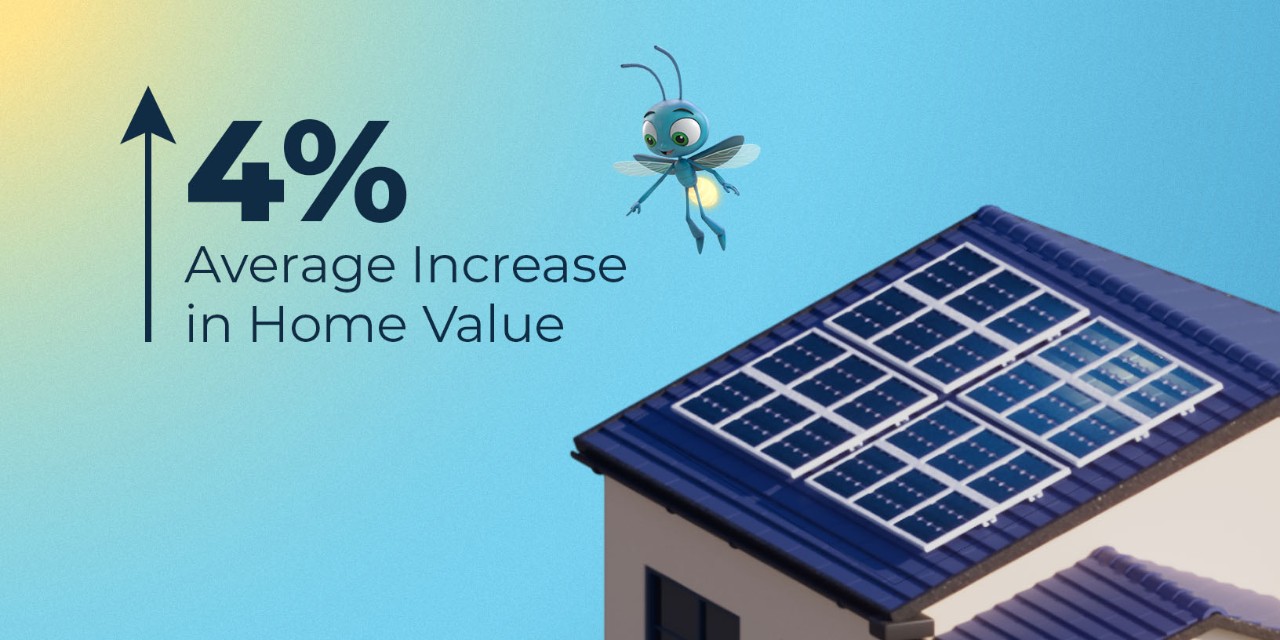
Solar Panel Maintenance and Longevity
Routine Maintenance
As discussed, you will need to book annual inspections from a qualified professional to make sure your solar panels are working as they should. However, you can also perform minor maintenance yourself. Your solar panels will need cleaning around four times a year to remove dirt, dust, and debris, during which you can check for damage to the panels, roof, and wires. Many installers provide these services with the cost of installation, but if not, annual inspections will cost you around $150 each time, plus cleaning fees.
Cleaning and Upkeep
If your solar energy output decreases early on, it is likely due to damage, or dirt or snow on the panels. When performing solar panel maintenance yourself, it is important to do it correctly and take your personal safety into account by following these steps.
- Turn off your solar power before you get started. This will remove any risk of electrocution.
- Clean the panels with water. Don't use cleaning products or soaps, as these can damage the panels. Usually, spraying with a garden hose works well, but for heavier soiling, a gentle wipe with a microfiber cloth should do the trick.
- Refer to the manufacturer’s instructions for your specific type of panels to ensure proper care and maintenance. If you’re unsure about cleaning your panels yourself, consider hiring a professional service.
System Monitoring
A monitoring system can help keep your home's energy production on track. It can track things like energy consumption, generation, and exports so you can see how your solar panels are performing, and detect issues early.
Home Insurance and Solar Panels
Before going ahead, it's important to know the effect of solar panels on your home insurance. For this reason, you'll need to inform your insurance providers about the installation before you start so you can adjust your policy and make sure you're covered every step of the way.
You should also understand your solar panel warranty, which comes in two parts: the product warranty, which typically covers the equipment for at least ten years, and the performance warranty, which promises a well-functioning system. The performance warranty typically guarantees 90% performance after ten years, and 80% production at 25 years, but be sure to check these details with your installer.
Join the Movement
Opting for solar panels is a fantastic way to help the planet, and it could save you money. However, it isn't for everyone, and ultimately, your decision will depend on the suitability of your home and lifestyle. Luckily, if you've decided not to move forward with panels, your solar journey doesn't have to end here.
Solar energy plans are a great idea if you want a cost-effective source of green energy with no installations required. You’ll benefit from energy with reduced air pollution, which produces no greenhouse gases and reduces dependence on imported fossil fuels, which is perfect for those who are unable to install solar panels. To find out more about residential solar power, why not check out a few of our other resources? We'll discuss solar plans vs. installations, choosing a solar plan, how to get started on an installation, and calculating your solar payback period to find out whether solar panels are worth the cost.
Take a big step for the planet with a renewable energy plan.
Enter your ZIP code to get started.
March 06, 2025
Ready to install solar panels? This article walks you through the process from assessing your home’s suitability to finding the right solar panel installers and electricity provider. It also explains financial incentives and what to expect from the installation process.
March 04, 2025
This article breaks down the costs of solar panel installations and provides insights into financing options. It helps you evaluate whether the long-term energy savings and environmental benefits make solar panels a good investment for your home.
March 03, 2025
One of the most important factors in deciding to install solar panels on your home is the payback period. Learn how to calculate when your investment will pay off based on your initial costs, annual savings, and other key factors.
